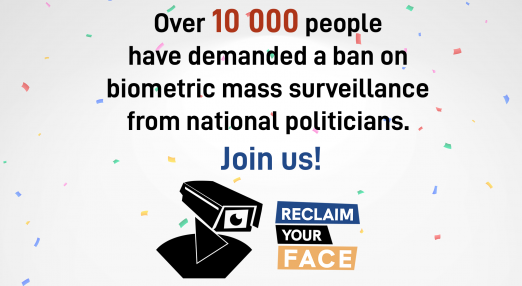Privacy and data protection
Filter resources
-

Benefiting whom? An overview of companies profiting from “digital welfare”
Could private companies be the only ones really profiting from digital welfare? This overview from EDRi member Privacy International looks at the big players.
Read more
-

The slippery slope of COVID health passports
There is increasing talk of measures that allow or restrict passengers at the departure gate based on health data. Can you show proof of vaccination? Then you may pass. Do you have a recent, negative test result? Then you may enter. Are you unable or unwilling to show these? Then you are denied access. There’s an understandable rationale that underpins these scenarios: we want to create a safe environment. Yet it is also cause for great concern.
Read more
-

German Corona tracing app available without Google services
A handful of Free Software developers today achieved what official bodies have been missing for months: They have made available the German Corona Warn App for tracing Covid-19 risk contacts in a version that is completely free of dependencies on Google and available in F-Droid, the Free Software app store.
Read more
-

Reclaiming faces and public spaces!
The Reclaim Your Face movement is growing, and our demands for transparency, limiting the accepted uses and respect for humans are becoming more and more common across Europe. New organisations are joining the coalition each week, and people across Europe continue to sign the petition to add their voices to our demands. Now, thanks to campaigning by Homo Digitalis in Greece and Bits of Freedom in the Netherlands, we’re getting closer to real political and legislative changes that will protect our faces and our public spaces from biometric mass surveillance.
Read more
-

EDRi-gram, 9 December 2020
In this final 2020 edition of the EDRi-gram, our wish is to start 2021 with more energy, momentum and resources to protect our rights and freedoms online. Would you consider donating to help make that happen?
Read more
-

“E-evidence”: Mixed results in the European Parliament
The European Parliament Committee on Civil Liberties (LIBE) agreed on a final text for the Regulation on cross border access to data (so-called “e-evidence” proposal). Despite some improvements designed to better protect people against law enforcement overreach across jurisdictions, the Committee’s majority has unfortunately also made major compromises that will put the rights of journalists, lawyers, doctors, social workers and individuals in general at risk.
Read more
-

Looking back at digital rights in the era of a surveillance pandemic
2020 started as a year to build momentum to tackle various digital rights issues, including mass surveillance and freedom of expression online. Needless to say, the global pandemic disrupted not only these efforts but also our health, personal relations, basic survival needs and ways to organise around human rights. After 9 months of living and working in a pandemic, we look back at what we achieved and the ways forward from here.
Read more
-

For a truly “Trustworthy AI,” EU must protect rights and deliver benefits
EDRi member Access Now published a report exploring the actions EU governments are taking to promote what the EU calls Trustworthy AI, what this approach means for human rights, and how European AI strategy is changing, both for EU institutions and national governments.
Read more
-

Envisioning a Decolonised Digital Rights Field – and Charting Next Steps
This week, a group of 30 participants, working on issues of racial, social and economic justice, digital rights, and in philanthropy, came together to not only collectively imagine just that, but also to identify the building blocks for a process that might help us get there.
Read more
-

EU alphabet soup of digital acts: DSA, DMA and DGA
Members of the European Commission appointed in 2019 agreed to put digital policies as one of the cornerstones of EU legislation between 2019-2023. These include the Digital Services Act (DSA), the Digital Markets Act (DMA) and the Data Governance Act (DGA). So, what are the differences between these acts?
Read more
-

10,000 people demand a ban on biometric mass surveillance
Reclaim Your Face is a European movement to bring people’s voices into the discussion around the use of biometric data to monitor the population. Since its launch only two weeks ago, over 10,000 people have signed their support by adding their name to the call for transparency, red lines, and respect for humans in European uses of biometrics.
Read more
-

A vicious circle? Enabling privacy-friendly alternatives to behavioural advertising
EDRi member Panoptykon Foundation published a report “To Track or Not to Track: Towards Privacy-Friendly and Sustainable Advertising” which argues that there is only one winner in this supposed “win-win” situation: the ad tech industry.
Read more
